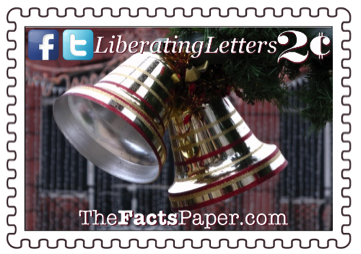December 25, 2015
Dear Liberty,
“Help!”
The scream sliced through the house like a cold knife. Henry woke with a start from a peaceful afternoon nap to find his wife in flames. Her dress was on fire and threatening the life of the mother of six. Henry grabbed a rug and desperately tried to smoother the growing flames engulfing his precious love, Fannie. Realizing time was of the essence, Henry covered Fannie’s body with his own, suffering burns on his face that would mentally and physically haunt him for the rest of his life.
Despite his best and most heroic efforts, Henry was unable to save her. Fannie succumbed to her injuries the next morning on July 10, 1861. Suffering from his own serious wounds, Henry was unable to even attend his beloved’s funeral. He wasn’t sure he could maintain his composure anyway.
Henry pulled himself together only because he had to find a way to raise their children. He grew a beard to try to hide his physical scars but he wasn’t sure if it was for the sake of others or himself. Two years after Fannie’s death, their eldest son Charles, snuck off to Washington D.C. to enlist in President Lincoln’s Union army. Initially dismayed, Henry was proud of his son and eventually wrote several of his friends, including Senator Charles Sumner (see The Birth Of A Movement), in support of commissioning Charles as an officer. His efforts were unnecessary as Charles was quickly made Second Lieutenant in the 1st Massachusetts Cavalry.
Charles soon suffered from typhoid fever and returned home to recover. This caused Charles to miss the Battle of Gettysburg. (see The Unforgettable Address) He rejoined his unit in August, only to receive a life threatening gunshot wound in late November. Henry received word by telegram of his son’s condition. He and his son Earnest quickly traveled to Washington through the dreary December weather to retrieve Charles and bring him home for another time of recovery.
On Christmas morning 1863, Henry quietly sat and listened to the bells ringing through the town. Choruses of “Peace on Earth” saturating the air rattled Henry’s heart. The turmoil between the North and the South was only matched by the turmoil within Henry’s soul still suffering from the loss of his beloved wife and battle scars of his dear son. These words came to mind.
And in despair I bowed my head;
“There is no peace on earth,” I said;
“For hate is strong,
And mocks the song
Of peace on earth, good-will to men!”
Yet among all the violence, death, pain and despair, Henry was able to find hope.
Then pealed the bells more loud and deep:
“God is not dead, nor doth He sleep;
The Wrong shall fail,
The Right prevail,
With peace on earth, good-will to men.”
Henry Wadsworth Longfellow expressed a simple message of faith in the last stanza of his poem, “Christmas Bells.” In 1872, John Baptiste Calkin rearranged the poem and combined it with a memorable tune to produce the loved Christmas Classic, “I Heard the Bells on Christmas Day.”
Longfellow used the phrase, "peace on earth, good-will to men," taken from Luke 2:14. The more precise language is “Glory to God in the highest, and on earth peace among those with whom he is pleased!” (ESV) The angels' praise of peace was not that peace would be felt by the whole earth, but that the birth of Jesus Christ will bring peace to believers.
Since the fall of Adam the world has been living with the curse of sin. (see Fruit Of The Forbidden Tree) As Longfellow was experiencing, this world is full of grief and pain, but God sent the peace of a savior to those who believe. It is a gift of hope and reassurance in a world that often times seems filled with pain. So this Christmas, as things in the world seem completely out of control, find joy and happiness in the Reason for the Season, the blessed peace of Our Lord and Savior Jesus Christ who brings, "peace on earth, good-will to men."
That's my 2 cents.
Love,
Mom
PEACE ON EARTH,
GOOD WILL TO MEN



